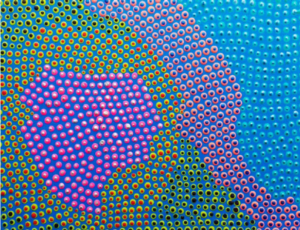Online
Inclusion and diversity have marked the demands of social movements in the 21st century. With the concept intersectionality, inspired by feminist movements in the US, the academic field aims to understand how various interdependent conditions of oppression and inequality–class, gender, religion, ethnicity, skin colour, citizenship, migration, geography, and language–are reflected in exclusion, but also in the articulation of differentiated demands and struggles. Much less visible have been the voices of academics and activists from Latin America, who have both made perceivable and conceptualized social and political exclusion from the peripheries.
This series of public lectures “Diversity/Medialities” organized by the Ibero-Amerikanisches Institut and Mecila, focuses on these voices from the margins, their long-term conceptual and epistemological frameworks, and their forms and media of circulation and entanglements. With the first focus on feminist and LGTBIQ movements and ideas we invite experts and activists analysing South-North interconnections in the struggles for the rights of women and LGTBIQ groups in Latin America.
Flyer Lecture Series “Diversity/Medialities”

© Sofia Ruvituso
Programme
25, January 2022 – Virtual via Webex
Dr. Susanne Schultz (Goethe-Universität Frankfurt am Main/Mecila Senior Fellow): The Travelling Concept of Reproductive Justice: Challenges for Intersectional Feminist Agendas
The concept of reproductive justice was introduced by Black feminists in the USA in the 1990s with the claim to address structural inequalities related to abortion, contraception, pregnancy, birth and motherhood. More recently, it has been increasingly taken up by feminist intersectional politics in various contexts. In her lecture, Dr. Susanne Schultz (Goethe-Universität Frankfurt am Main/Mecila Senior Fellow) will introduce the foci and orientations of this political-theoretical framework. She will point out new insights and also challenges for a feminist politics of reproduction linked to the claim of reproductive justice. And she will present some preliminary results of her ongoing research on reproductive justice in feminist activism in Brazil.
Inclusion and diversity have marked the demands of social movements in the 21st century. With the concept intersectionality, inspired by feminist movements in the US, the academic field aims to understand how various interdependent conditions of oppression and inequality–class, gender, religion, ethnicity, skin colour, citizenship, migration, geography, and language–are reflected in exclusion, but also in the articulation of differentiated demands and struggles. Much less visible have been the voices of academics and activists from Latin America, who have both made perceivable and conceptualized social and political exclusion from the peripheries. The series of public lectures focuses on these voices from the margins, their long-term conceptual and epistemological frameworks, and their forms and media of circulation and entanglements.
With the first focus on feminist and LGTBIQ movements and ideas we invite experts and activists analyzing South-North interconnections in the struggles for the rights of women and LGTBIQ groups in Latin America.
Moderation: Dr. Clara Ruvituso (IAI; Mecila – Maria Sibylla Merian Centre Conviviality-Inequality in Latin America)
Register here.